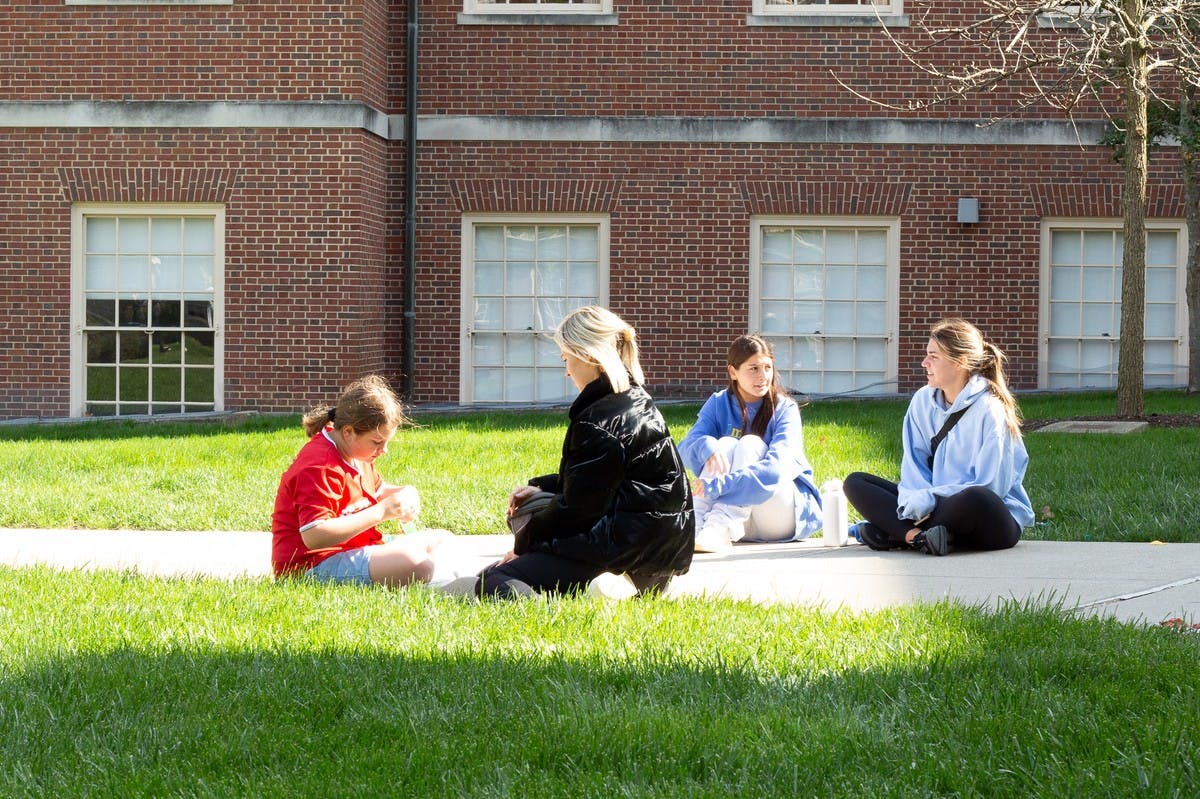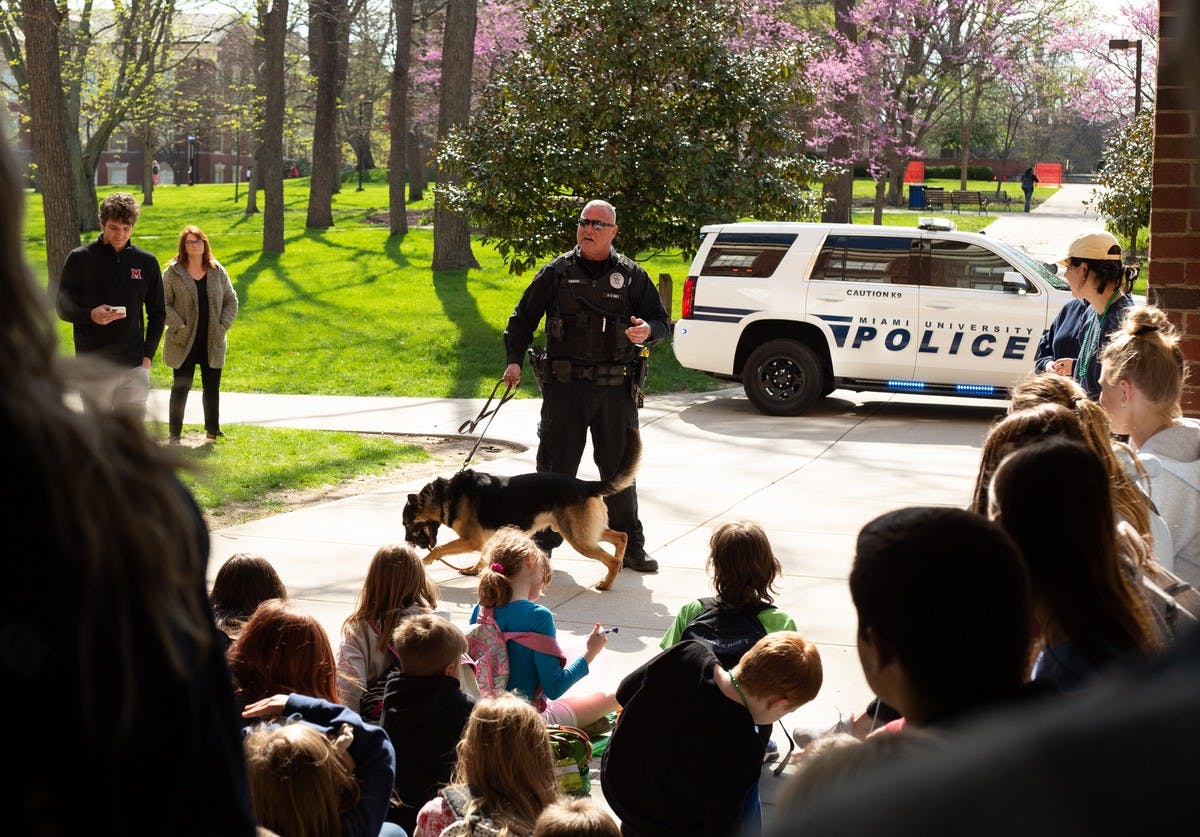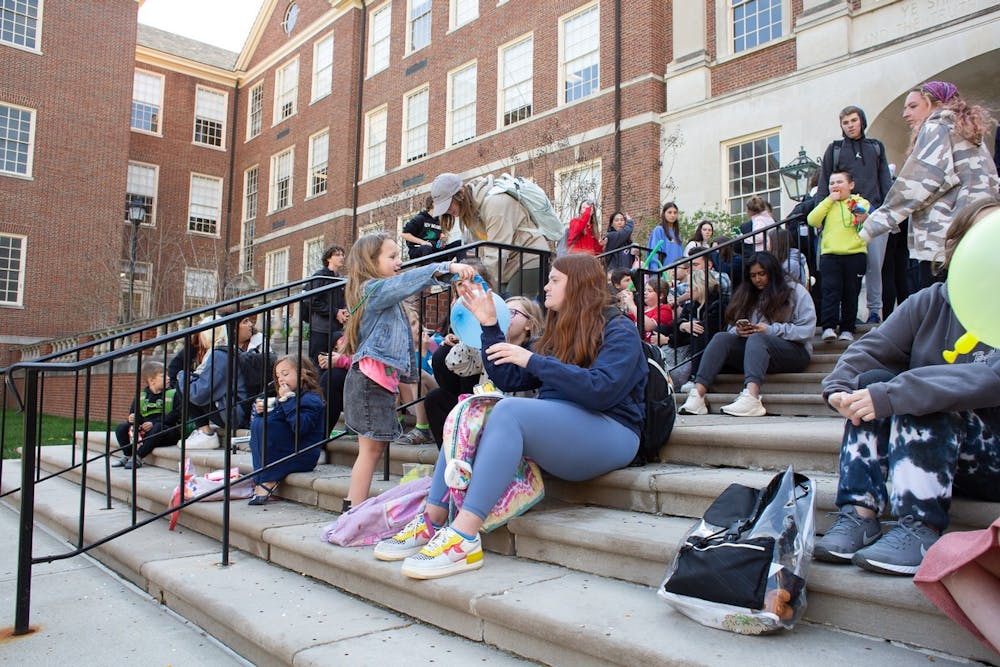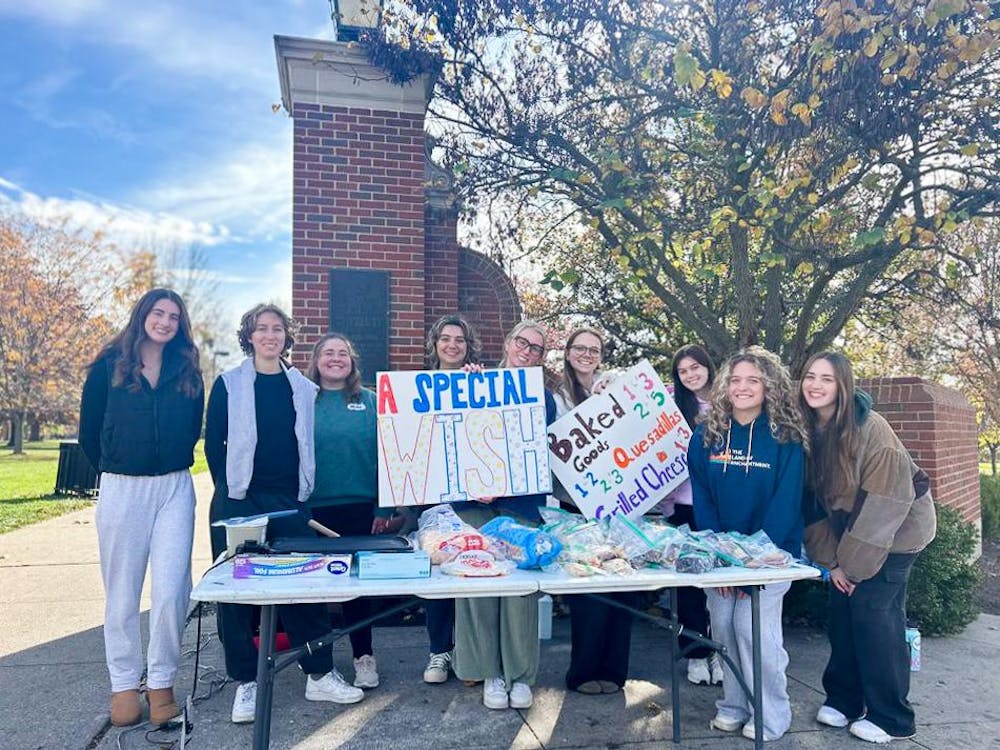It seems unlikely to see young kids on Miami University’s campus, but this semester Miami students can see an excited group of elementary-aged kids every Tuesday.
They were especially noticeable one sunny day this April when anyone walking through Academic Quad could see young children gleefully covering Miami students in whipped cream and chocolate.
This was a special “Pie a Mentor” event held by Miami’s College Mentors for Kids chapter.
College Mentors for Kids is a mentoring program that allows college students to work with local elementary school students. According to its national website, the organization started at Indiana University in 1996 and has expanded to include 32 chapters serving more than 2,700 kids. Each chapter engages kids weekly in on-campus activities with their mentors.
College Mentors chapters inspire growth and confidence in kids by exposing them to higher education. Zach Bates, associate director of programming for College Mentors’ national operations said the programs aim to teach the kids about their future and give them a trusted adult to lean on.
“[They get to] learn a lot about themselves, about the future, and about their [mentor], community service, culture and diversity [and] higher education,” Bates said.
Miami’s chapter works with kids from New Miami Elementary School in New Miami, Ohio. Preston Krzyzak, president of College Mentors at Miami, said the program shows the kids new opportunities related to higher education and gives them confidence and ideas about the future. He also emphasized the importance of connection.

The organization gives many of the mentee students an early look at what their future could look like.
“They always have someone to talk to,” Krzyzak said. “They have their mentor, they always can rely on them … we’re the one thing that they can do outside of New Miami.”
The programs are focused on giving back to the surrounding communities near college campuses. The organization gives many of the mentee students an early look at what their future could look like.
Enjoy what you're reading?
Signup for our newsletter
“About 75% of the kids come from economically disadvantaged homes, and we equate that to free and reduced lunches at the schools,” Bates said.
The organization’s mission has shifted over the years to focus more on kids who fit this demographic. College Mentors’ chapters partner with specially chosen elementary schools which select kids from their student body to participate in the program.
Due to the demographic of the area, Bates said Miami’s chapter serves a higher percentage of kids considered disadvantaged than the organization’s national average.
According to the 2020 census, about 3% of New Miami’s 2,217 people have received a bachelor’s degree or higher.
To encourage kids from New Miami Elementary to consider higher education, the mentors expose them to experiences at Miami University. These activities can range from a rock climbing day at the Rec to a Women’s History Month presentation to a workshop on how fundraising works.

Elementary school students in Miami's College Mentor for Kids program learn about K-9s from Miami University Police Department (MUPD)
All 32 chapters, including Miami’s, are run entirely by college students, though they are evaluated each year.
“[We give them] a grade each year to make sure we’re upholding national safety standards and make sure we have a great national program,” Bates said.
The student leaders that run each chapter gain leadership experience, mentoring skills and community service engagement.
Michelle Cosmah, faculty advisor for Miami’s chapter, said the mentor position is open to all Miami students.
“It can benefit any major to work with youth,” Cosmah said, “and this is a great program that you don't have to know about kids, you don't have to be in a child-[focused] program [for], but it gives you a way to mentor youth and get to know them.”
The 2021-22 school year has been a year of growth for the organization. When Krzyzak became president, the program had only four members despite launching in 2016. This spring semester, the program has expanded to 75 college mentors and 54 elementary school students.
They were awarded this year’s Chapter of The Year award by the national organization.
Krzyzak said the chapter plans to expand its program, possibly working with another school and bringing elementary students to Miami’s campus on both Tuesdays and Wednesdays.
“It’s going to look like what we have now but double the size, so double the engagement,” Krzyak said. “Double the college students, double the elementary school kids, double the impact, and I guess double the fun … that’s one thing I’m hoping for.”




